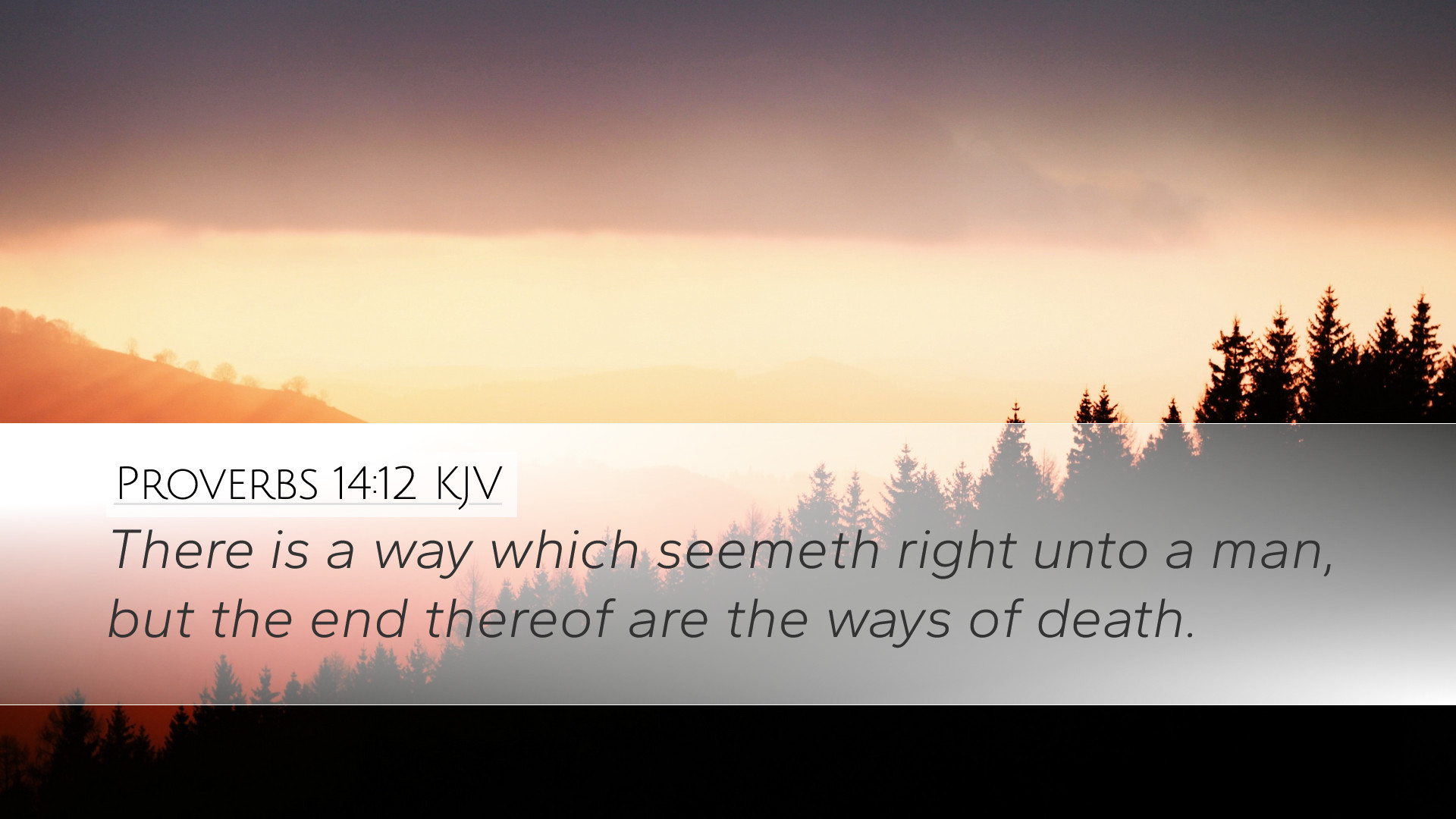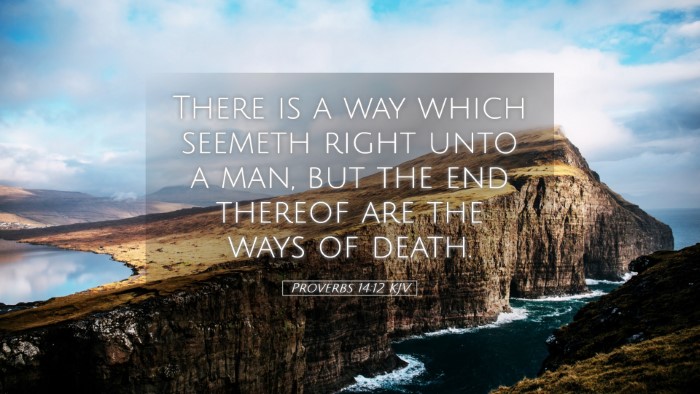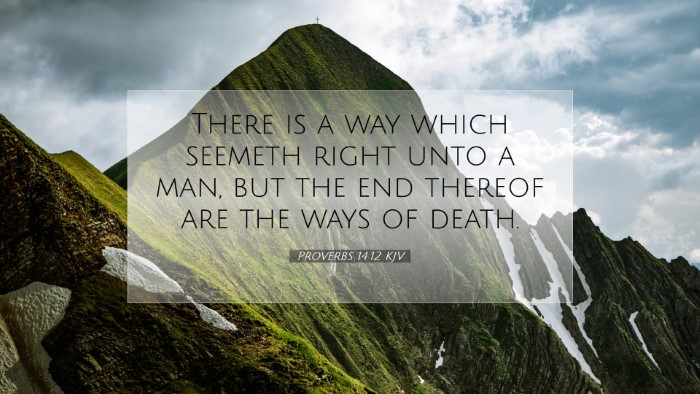Commentary on Proverbs 14:12
Proverbs 14:12 states, "There is a way that seems right to a man, but its end is the way of death." This verse is crucial for understanding the human condition in relation to divine wisdom, and it warns against reliance solely on human judgment.
Introduction
The Book of Proverbs is rich in practical wisdom, offering guidance for daily living through various aphorisms and teachings. In 14:12, the contrast is drawn between the perception of what is 'right' to man and the reality that God’s way is the ultimate truth. This commentary synthesizes insights from several public domain sources, including Matthew Henry, Albert Barnes, and Adam Clarke.
Analysis of the Verse
Matthew Henry notes that this proverb illustrates the folly of trusting in one’s own understanding. The idea expressed here is that human reasoning can often lead one astray, leading to paths that, while appearing justifiable, ultimately lead to destruction.
Human Judgment vs. Divine Wisdom
According to Albert Barnes, this verse encapsulates the danger of self-deception. He emphasizes that many people embark on paths they believe will lead to happiness and fulfillment but fail to recognize the inherent spiritual perils. This highlights a critical aspect of wisdom: that humans cannot always discern the proper way due to their limited perspective.
Adam Clarke further explores the implications of following one's own heart and encourages readers to be aware that what may seem right to them can often lead to harmful consequences. Clarke suggests that this is a call to introspection and reliance on the teachings of Scripture.
The Way that Seems Right
The 'way that seems right' refers to the inclination of the human heart to pursue desires, ambitions, or choices based on personal logic or emotional satisfaction. It suggests an innate tendency to rationalize decisions that may not align with God’s will.
- Self-Deception: The first step to destruction is often a false confidence in one's wisdom.
- Appeal of the World: Many paths of worldly success allure individuals, masking their spiritual consequences.
- Lack of Divine Guidance: When one ignores the teachings of Scripture, they risk falling into error.
Consequences of Misguided Choices
The latter part of the proverb, "but its end is the way of death," serves as a stark warning. The ultimate consequence of following a way that seems right, without divine endorsement, is spiritual and sometimes even physical death.
Henry stresses that the end of such paths can manifest in various forms: broken relationships, unfulfilled potential, and ultimately, separation from God. Barnes adds that this 'death' can be understood both literally and metaphorically, as it represents the ultimate failure of moral and spiritual living.
The Role of Wisdom
In contrast to the folly of human reasoning, the pursuit of divine wisdom is essential. Wisdom, as personified in Proverbs, is portrayed as something to be sought after vigorously.
- Seek God’s Guidance: Proverbs consistently encourages believers to seek the Lord in all their decisions.
- Trust in the Lord: The heart must lean not on its own understanding, but rather in all ways acknowledge Him (Proverbs 3:5-6).
- Community and Accountability: Engaging with wise counsel in community can prevent the isolation that often leads to poor decisions.
Conclusion
Proverbs 14:12 emphasizes the need for divine wisdom in decision-making. It serves as a reminder of the fallibility of human judgment and the consequences that can arise from it. Pastors, students, theologians, and scholars alike are encouraged to reflect deeply on this verse, considering both the apparent ease of following one's own path and the sobering reality of its ultimate destination.
In echoing the words of Matthew Henry, let us seek to conform our understandings to divine truth, recognizing that what may seem right to us can be perilously misleading unless illuminated by the teaching of Scripture and the guidance of the Holy Spirit.


